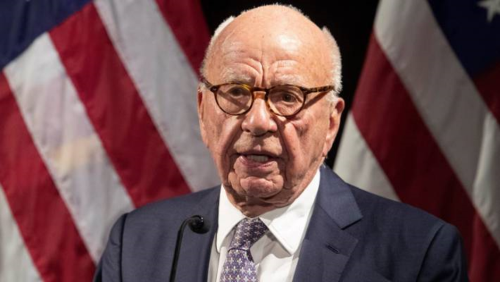Media ethics under fire
29 January 2020

The trustworthiness of the media has been subjected to unprecedented attacks over the last few years, from both the right and the left.
Both United States President Donald Trump and British Prime Minister Boris Johnson have relentlessly attacked elements of the media from the right and Rupert Murdoch's media empire has been attacked from the left.
Where do the journalists sit among all these attacks?
Earlier this month, Emily Townsend, a senior employee at Murdoch-owned News Corp Australia, denounced her employer's coverage of the Australian bushfires in a staff-wide email following her resignation.
Townsend accused News Corp of running a misinformation campaign by focusing on arson and exaggerating facts to divert attention away from climate change.
She stated that she found it "unconscionable to continue working for this company" knowing that she was "contributing to the spread of climate change denial and lies".
When the email was leaked to the general media, News Corp chief executive Michael Miller made a statement that "we respect Ms Townsend's right to hold her views but we do not agree with them" and referred to the "variety of views and opinions about the current fire crisis".
This isn't the first time a controversy has erupted over Murdoch-owned publications.
In the United Kingdom, News of the World, a publication owned by the Murdoch family's News International, was shut down in 2011 when it became public that employees of the newspaper were engaging in phone hacking, police bribery and exercising improper influence in the pursuit of stories.
Numerous senior employees and executives resigned in the wake of the scandal before the publication was shut down.
Indeed, what occurred was so serious it led to a public inquiry into the culture and ethics of the British media called the Leveson Enquiry.
Has the British media improved? What about the media scrutiny focussed on the Duke and Duchess of Sussex, Meghan Markle and Prince Harry?
Analysis by social intelligence company Brandwatch found that Meghan Markle had appeared in 16,800 more negative news stories than Kate Middleton over the last year. Even when you account for the fact that Meghan appeared in more news stories generally, it was still found that she received 132 per cent more negative media coverage.
A number of commentators, largely from the left, have cited racism as the reason behind the media treatment of Meghan. Others from the right, such as Piers Morgan, have denied that there is even unfair treatment in the first place.
What rights do journalists have when they believe their publication is biased? What about if it is telling lies or engaging in criminal activity as occurred at News of the World?
In New Zealand, if an employer's action or inaction makes an employee's situation at work so intolerable that they resign, it may be treated as if the employee was actually dismissed by the employer. This is called constructive dismissal and can give rise to a personal grievance and remedies in the Employment Relations Authority.
Constructive dismissal can be found in cases were an employee is told to resign or where the employer deliberately pressures the employee to resign.
It can also be constructive dismissal where the employer breaches a fundamental duty leading the employee to resign, provided that outcome was foreseeable.
For that last category, the employer doesn't have to intend that the worker resigns, just to have behaved in a way that would lead a third party to believe that a worker would resign, for example by providing a highly unsafe workplace.
Certainly someone working at News of the World, if they knew about the bribing of police officers or illegal tape recordings, would have a strong argument to say that the employer was breaching fundamental duties it owed them and could successfully claim constructive dismissal under our laws.
A good example of this argument is an often-cited English case from the 1990s concerning senior employees of the collapsed Bank of Credit and Commerce International.
The employees contended that the bank had breached the implied duty of trust and confidence by operating in a corrupt and dishonest manner and sought damages for the reputational harm they suffered for working there.
The House of Lords found for the employees, making a comment that "in agreeing to work for an employer the employee, whatever his status, cannot be taken to have agreed to work in furtherance of a dishonest business".
What about Townsend? She and News Corp have very different opinions on the bushfire crisis and how it should be covered, would that be enough to establish that different ethical standpoints on the work she does has forced her into leaving? Or was it a standard resignation driven by differences in opinion?
No doubt those who own the media think that socially concerned reporters should not be determining the newspaper's editorial line. On the other hand, there comes a point when a journalist, regardless of their personal political persuasion, feels that they are crossing boundaries and participating in something immoral and in some cases, illegal.


